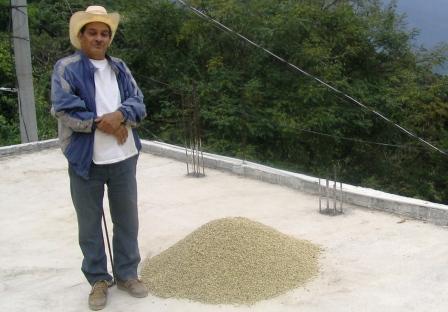Center for Fair & Alternative Trade
"Cultivating Cooperativismo: An Ethnography of Communication in Nicaraguan Fair Trade Cooperative Meetings"
Presented by Leah Sprain, Assistant Professor, Communications Studies, CSU

On March 30, 2010, Dr. Leah Sprain, CFAT faculty associate and Assistant Professor of Communication Studies at CSU presented “Cultivating Cooperativismo: An Ethnography of Communication in Nicaraguan Fair Trade Cooperative Meetings” to CFAT faculty, students, and associates. Dr. Sprain’s research focuses on local practices of democracy, emphasizing the varied ways in which individuals see themselves as acting politically from conscious consumption, to environmental activism, to participation in community deliberation.
In the seminar, Dr. Sprain presented the findings from a qualitative case study of local speech practices in Nicaraguan fair trade coffee cooperative meetings and engaged seminar participants in a discussion of the role of democracy in Fair Trade networks. Dr. Sprain reported findings from her eight months of field work in Nicaragua which included participant observation of 69 coffee cooperative meetings.
Dr. Sprain seeks to understand democratic practices within the cooperative and the process by which these practices are socially constructed. Drawing on communication and political science approaches she analyzes three dimensions of democratic practice. 1. Inclusion and whether all relevant adults are included in the process. 2. Effective participation, which is achieved through equal and adequate opportunity to set the agenda, express views on agenda issues, and vote on those issues. 3. Enlightened understanding and whether participants “have the chance to figure out what issues concern them, what they think about those issues, and how they should vote on those issues when given the chance to do so” (Gastil, 2007, p. 7).
Dr. Sprain finds that while cooperative meetings demonstrated important democratic features, democratic practices are not always evident. Meetings tend to be dominated by leaders and non-leaders have little opportunity to present their views or shape the agenda. There are no agreed upon turn taking practices, meaning that speakers regularly interrupt each other or speak over each other to get attention. Only leaders can call for a vote and there are instances in which vote counting may be conducted by the candidates themselves. While protecting and promoting minority voices remains a challenge, workshops on gender roles and women’s rights have contributed to community discussion and awareness of machismo. Dr. Sprain concludes that cooperative participation is associated with the development of local notions of democracy and civil rights.
Dr. Sprain used her assessment of democratic practices in Nicaragua to question the role of democracy in Fair Trade more generally. Dr. Sprain considered the argument made by CFAT researchers and other scholars that in addition to improving market conditions, Fair Trade participation builds producers’ capacities. This argument assumes that political participation builds human capacities. Yet this “participation hypothesis” is hotly debated in political science and communication studies. The Nicaraguan case study reveals that the Fair Trade requirement that producers and workers form “democratic organizations” does not automatically lead to the practice of democracy. Dr. Sprain argues that if participation is going to build capacity, more attention needs to be given to fostering local practices of democracy within Fair Trade cooperatives. The seminar concluded with participants agreeing that Fair Trade needed to support democratic practices not only within cooperatives, but also within the larger Fair Trade network itself.
Back to Education